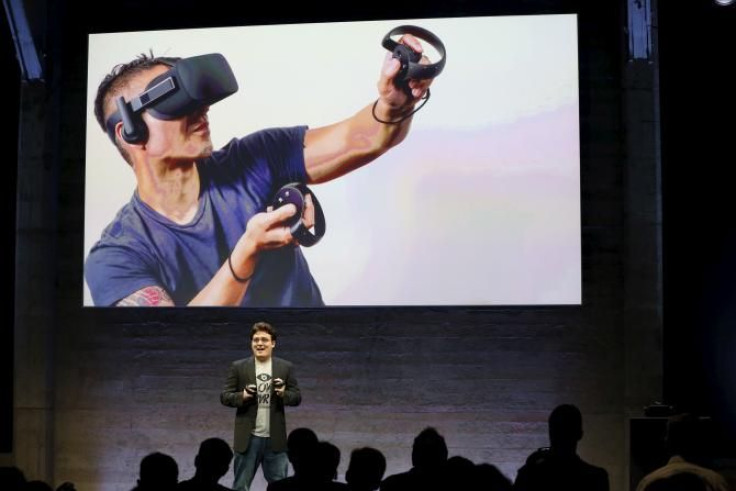Facebook’s New Social VR Team Wants To Develop Oculus Rift Virtual Meetups

Facebook has set up a virtual reality team with the goal of bringing its social network technologies into the virtual world. The company said Sunday VR could enable new forms of social interaction, for example, friends spending time with each other even though they live in different parts of the world.
“Our work in VR is still early, and there are a lot of hardware and software challenges that we still need to solve,” the company said in a blog post. “But we’re encouraged by our progress to date, and we’re excited to continue building VR technology that gives people new ways to connect and share.”
The company is gearing up to launch the Oculus Rift next month, a VR headset for PCs that will retail for $599. Facebook agreed to acquire Oculus VR, developers of the Rift, for $2 billion in March 2014. At the time CEO Mark Zuckerberg said virtual reality could become “the most social platform ever.”
In an interview with Wired Sunday, Zuckerberg explained how the industry had shifted in a very short time toward seeing virtual reality as the future, with Google and Microsoft both making inroads with the Cardboard and HoloLens headsets, respectively. “This is a thing that people were laughing at two years ago,” Zuckerberg said.
Facebook isn’t solely focusing on the Rift in its VR efforts. Zuckerberg joined Samsung onstage at the Barcelona Mobile World Congress Sunday to declare VR “the next platform.” At the same event, Samsung announced every Galaxy S7 smartphone preorder would come with a free Gear VR headset, a device that launched in November 2015 powered by Oculus technology.
Facebook also announced Sunday it would bring new streaming technologies to the Gear VR that improves the quality of 360-degree videos. Gear VR owners already have watched more than a million hours of video with the headsets since launch.
© Copyright IBTimes 2024. All rights reserved.












